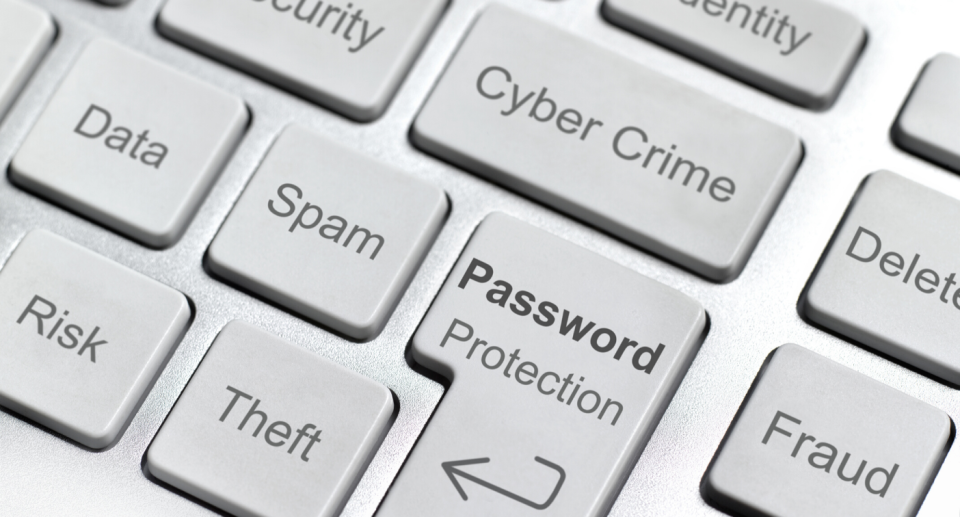5 expert tips on how to protect your identity shopping online ahead of Black Friday and Cyber Monday 2020
Looking for more of the best deals, latest celebrity news and hottest trends? Sign up for Yahoo Lifestyle Canada’s newsletter!

Yahoo Lifestyle Canada is committed to finding you the best products at the best prices. We may receive a share from purchases made via links on this page. Pricing and availability are subject to change.
With just weeks until biggest online sales event of the season, it’s also a time to be aware of any potential fraud. According to the findings of Shred-it’s 2019 International Fraud Awareness Week Report, one-third of consumers claim to be victims of fraud, with 41 per cent reporting that the source of identity theft was from breached credit card information.
ALSO SEE: When is Black Friday 2020 in Canada? Here's everything you need to know to score the best deals
While credit card companies and banking institutions help to identify international payments and purchases made outside of your shopping habits to help put your mind at ease, Preet Saini, Shred-it Sales Manager and Data Security Expert says that you shouldn’t rely on just account freezes and alerts when it comes to protecting your information.
“[Online identity theives] are really, really good at taking payments these days. You need to be extra hyper-vigilant when it comes to fraud prevention, especially on days like Black Friday — a day that online identity theft is definitely going to happen,” says Saini.
The report reveals that shoppers claim they became victims of fraud because their credit card number was stolen/used followed by:
Someone stole my information from physical paper documents (e.g. W-2, mail, paper files at work, etc.) — 22%
A company I do business with was hacked/breached and as a result, I became a fraud victim —20%
My passwords were too weak and someone gained access to my account(s) — 11%
I clicked on a link in a phishing email — 3%
To help you take the extra step in fraud prevention this Black Friday and Cyber Monday and beyond, Saini walks us through a few helpful and expert tips to protect your information.
Be the source of where you’re going online
Always keep track of your newsletter list and retailers you’ve subscribed to because your inbox could possibly harbour scam traps, especially during this time of the year. If you spot a promotional email from an unfamiliar retailer that should be a red flag.
“Don’t click it, just go into your browser and go into the actual website and check for the same promos,” suggests Saini.
Shop on reputable websites
Shop with familiar companies and watch for phishing schemes disguised as holiday deals. Hover the cursor over links to see where they lead before clicking when it doubt. “If you go to a fraudulent website and you type in your credit card number, it’s over, “says Saini. Of course, do some research on websites and retailers to make sure they’re legitimate especially when discounts seem too good to be true.
ALSO SEE: 11 Canadian retailers you'll want to bookmark ahead of Black Friday
Be a hawk with your credit card statement
Now until probably the end of January, look at it every single week. Take the extra time to just look at your credit and direct-banking statements and ask yourself “are there purchases on here that I did not make?”
Do not use the same password for everything
“If your password gets compromised it’s very likely that that hacker just needs to identify where else [you have accounts] (emails, Netflix, Disney+, Amazon Prime) and assume you have the same password,” says Saini. According to Shred-it’s report, 51 per cent of online shoppers use the same password for all their accounts. With giant e-commerce retailers like eBay and Amazon that require you to make a profile to house your shipping info and billing information, it’s recommended that you create a complex password.
Remove all shipping labels from online deliveries
Now that you’ve received your online purchase, the fraud prevention doesn’t stop there. Mailing labels and receipts containing personal information and should be properly shredded or destroyed after opening.
“By not doing so, you now have your name and your home address out there,” says Saini. Also, be sure someone is home to accept your packages.
For fraud protection on the go, check out Amazon’s best-selling wallet, the UTO RFID Wallet ($24). The stylish wallet is powered by protective RFID technology to keep your all cards safe from scanners. Featuring 22 card slots, six compartments to hold cash and receipt and a large zippered pocket for change, it’s the ideal must-have accessory to keep your valuable data and documents organized while you travel.
Backed by more than promising reviews, shoppers have been quick to share their positive reactions to this compact wallet, leaving it a solid 4.5-star rating.
Let us know what you think by commenting below and tweeting @YahooStyleCA! Follow us on Twitter and Instagram.


